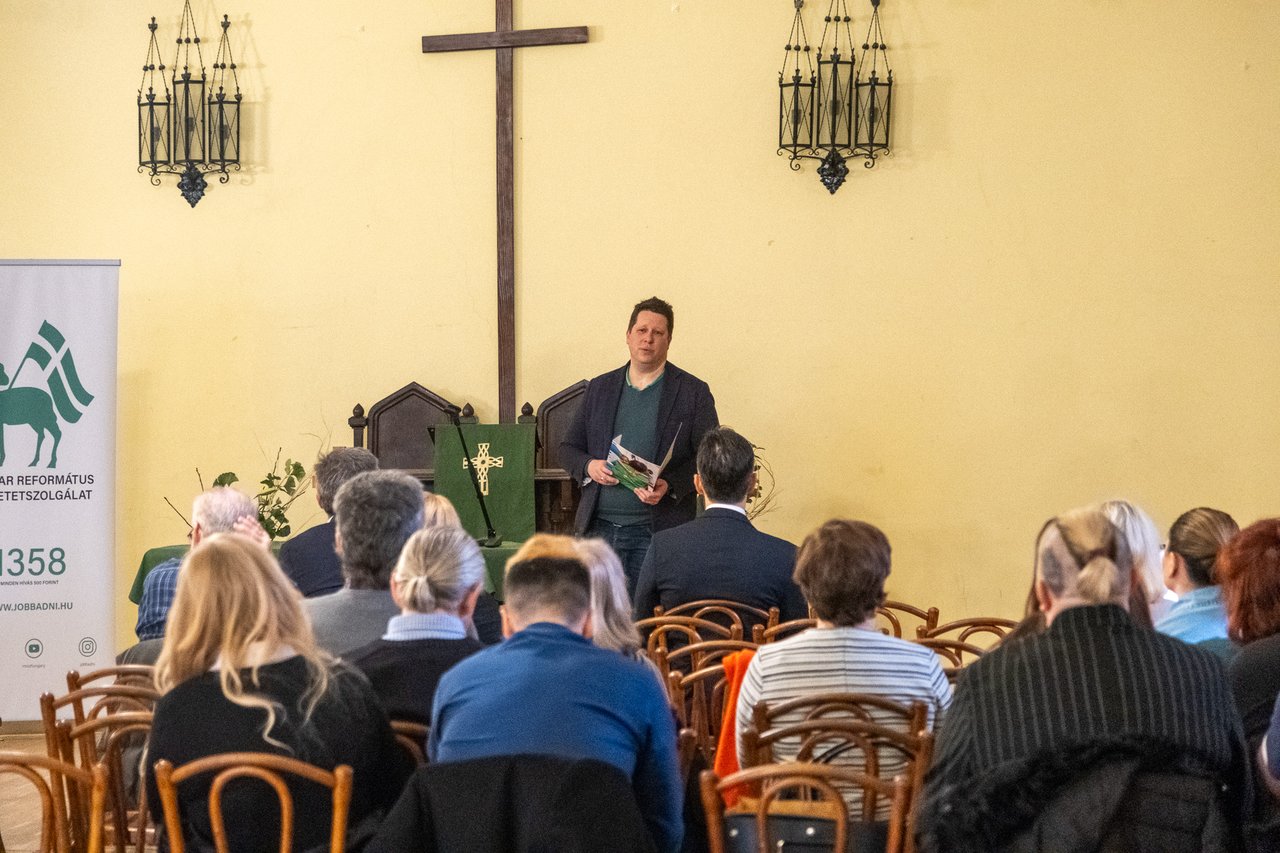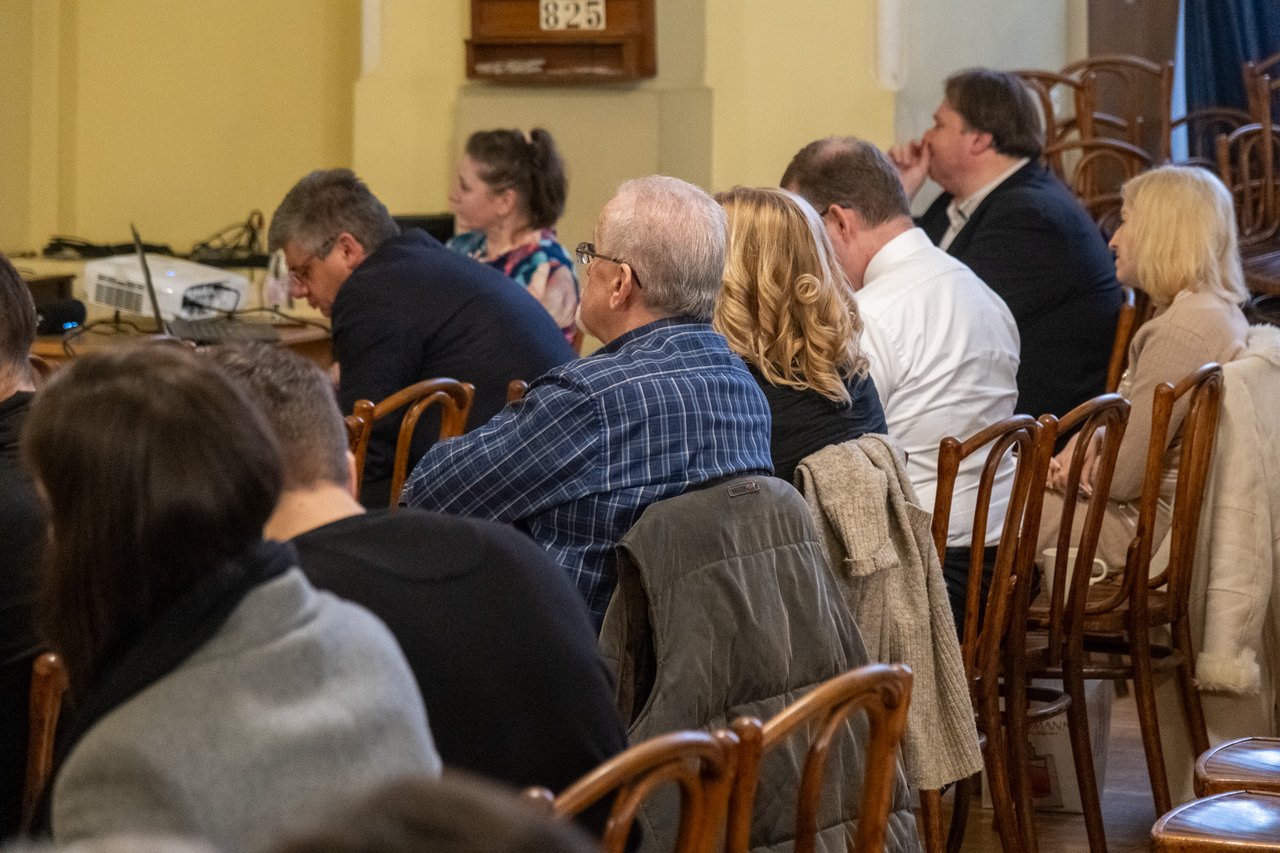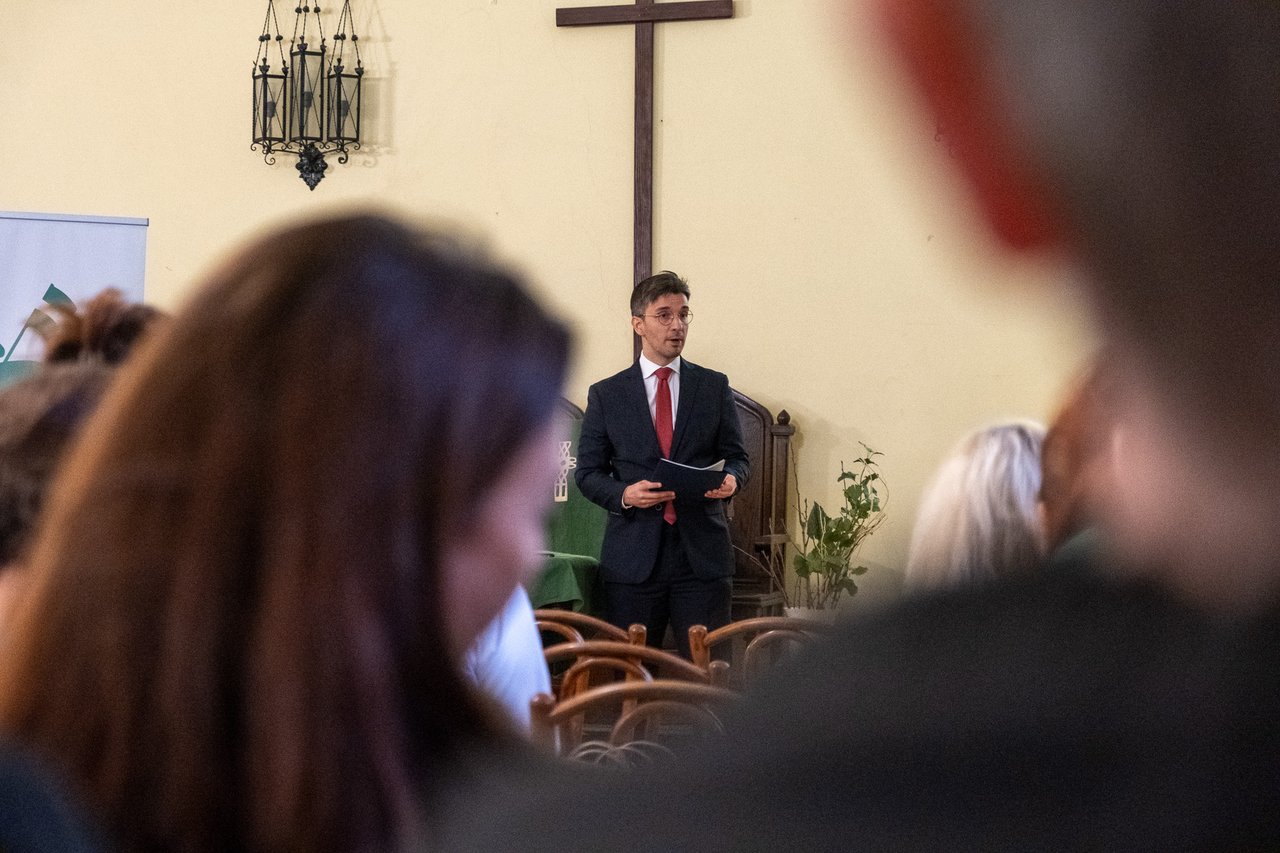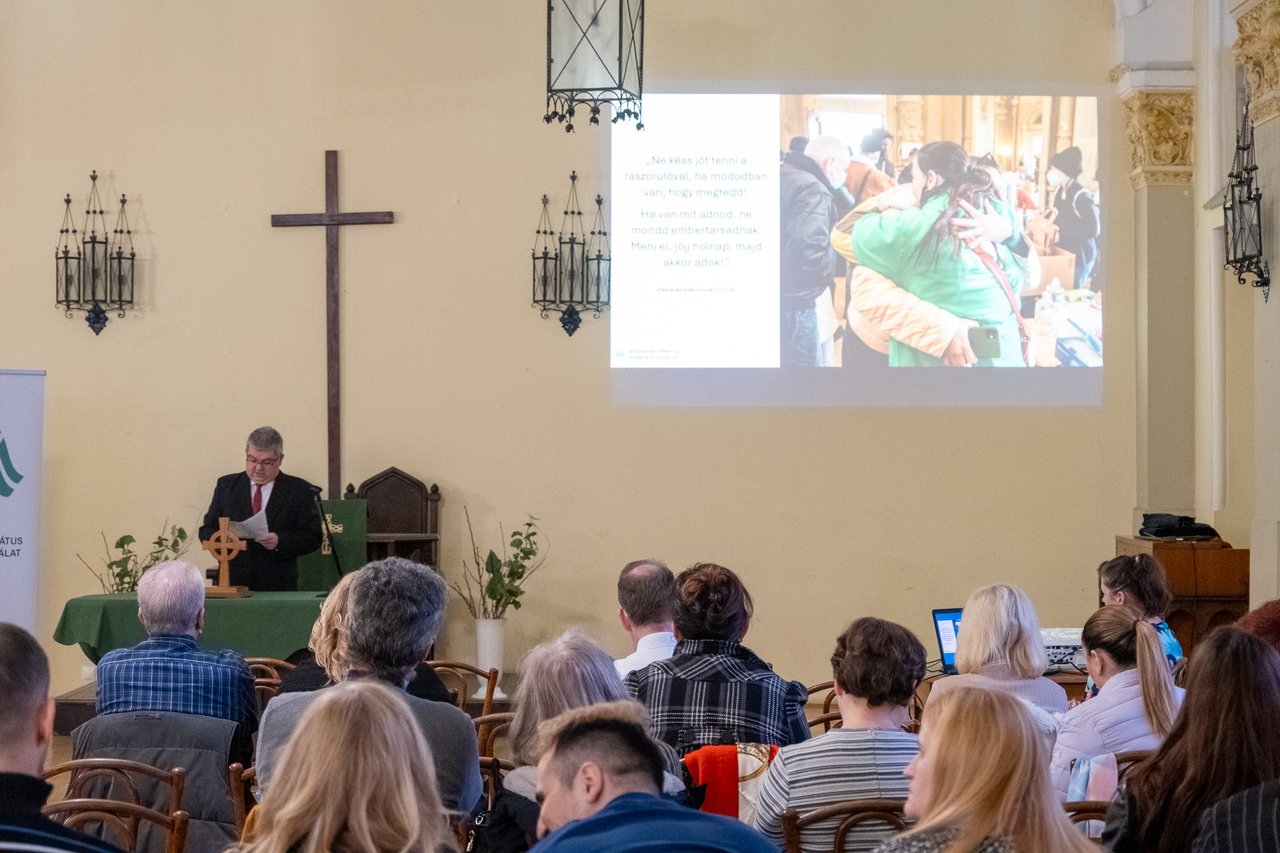It's been almost two years since the escalation of the Russian-Ukrainian war broke out on 24 February 2022, changing the lives of millions of people overnight. Since the first day of the war, the Hungarian Reformed Church Aid has been helping those who fled to our country and the brothers and sisters who remained in Transcarpathia. The service is supported by several churches, institutions, foundations and associations throughout the country. On Monday, the organisation's Refugee Ministry held a workshop in Budapest on the experience of its international humanitarian programmes and the opportunities for applications now being announced for the third time.

Márton Juhász, Executive Director of the Hungarian Reformed Church Aid
Photo: HRCA
“I think I am not alone when I say that I still remember clearly when the news of the war reached us, and we immediately picked up the phone, called our friends and acquaintances living in Transcarpathia, and immediately started thinking about what we could do, how we could help,” said Márton Juhász, Executive Director of the Hungarian Reformed Church Aid (HRCA). “In the past few years, things have happened that we would never have thought possible before. Four years ago, there was the coronavirus epidemic, and now this war. But we had to experience how much more valuable it is to join forces and help each other in these extremely difficult times, and how the Hungarian Reformed Church Aid can act as a catalyst in these connections,” he added.
Balázs Ódor, Head of the Ecumenical Office of the Synod Office of the Reformed Church in Hungary, thanked the foreign donors who made implementing the international humanitarian survivor-led community response (SCLR) projects possible, highlighting the Swiss Reformed Aid Organisation, HEKS. “We have a long-standing relationship with our foreign donors, and supporting local initiatives is an important part of this. It is thanks to this long-standing relationship that there is no need to explain that we are thinking in terms of the Carpathian Basin and that our brothers and sisters in Transcarpathia are living there and need our support now," said the head of the department, thanking the HRCA Foundation, its Refugee Ministry and the participating organisations for their support in this crisis and for using their moral capital, knowledge and experience to help the refugee communities.

HRCA Refugee Ministry held a workshop on the SCLR projects
Photo: HRCA
László Zságer, the head of the Refugee Ministry of the HRCA, quoted from the Gospel of Matthew: "For I was hungry and you gave me food, I was thirsty and you gave me drink, I was a stranger and you invited me in." (Matt 25:35) He recalled that the Refugee Ministry started its work in 2006 under the auspices of the Reformed Church in Hungary, and has since been transferred to the Hungarian Reformed Church Aid. Refugees fleeing the war in Russia and Ukraine are not the first to be helped: they are also constantly monitoring the integration and well-being of refugees from the Middle East, Central Asia and Africa.
Norbert Pál, the Government Commissioner responsible for persons fleeing to Hungary from the Russian-Ukrainian war, praised the work of the Hungarian Reformed Church Aid, which in addition to the services provided at the aid centres, also includes employment, health care and education. “The outbreak of the war has not only been a shock for Ukraine but also for our country, Europe and the whole world. All the competent bodies of the Hungarian state reacted quickly and professionally: first, there was an immediate phase, followed by a second phase to create the conditions for medium and long-term stay, such as the placement of children from Ukraine in the education system, the issue of employment, access to health care and other procedures related to the application for refugee status," he said. He added that since the outbreak of the war, 1.2 million refugees have arrived in Hungary, 40,000 of whom have applied for refugee status - dual nationals did not need it, so in reality, many more have settled in Hungary. Almost 640,000 refugees have requested some form of assistance from the Hungarian government, with the help of large Hungarian charities working in partnership with them at the Ukrainian-Hungarian border.

Norbert Pál, government commissioner for refugees fleeing the Russian-Ukrainian war in Hungary
Photo: HRCA
Mihály Tominec, SCLR coordinator of the Reformed Church in Transcarpathia joined the participants of the professional day online after the Ukrainian authorities refused to let him cross the border. In his presentation, he said that over the past two years, Transcarpathian grants have been used to run soup kitchens, improve health care and create community spaces, helping more than 7,000 refugees.
“From the very first moment, the Hungarians helped the Ukrainians in the war. This is a personal, generational experience, the impact of which will be felt decades later," said Károly Czibere, President of the Board of Trustees of the Hungarian Reformed Church Aid. In his presentation, he pointed out that the HRCA Foundation has provided assistance in Hungary and the border areas over the past two years. The organisation has now delivered more than a thousand tons of material donations to Transcarpathia, supported the construction of shelters for five Transcarpathian educational institutions, and last year helped the operation of charity kitchens to the tune of HUF 30 million. According to Károly Czibere, mutual trust and credibility were the most important prerequisites for the effectiveness of the church aid’s work for refugees.

Károly Czibere, President of the Board of Trustees of the Hungarian Reformed Church Aid
Photo: HRCA
The day concluded with a round table discussion with former SCLR applicants, sharing their experiences and looking for the next points of connection.
The Survivor-led community response (SCLR) program has played a pivotal role in uplifting local communities amid the escalation of the Ukraine war. Phase 1 addressed immediate emergency needs; however, in Phase 2, communities adapted to the evolving needs of vulnerable individuals. These small-scale financial contributions from the SCLR project aim to assist community initiatives addressing the needs of individuals and groups in crisis, such as refugees, the elderly, war-affected individuals, widows, single parents, Roma communities, and large families. Besides aiding vulnerable populations, community development and sustainability are integral to the SCLR initiative's goals. The objectives of the micro-grant program are to enhance social cohesion and resilience among host and refugee communities by funding community-driven initiatives. This includes economic empowerment through entrepreneurship and income-generating activities, joint community projects to address common challenges, and investments in education and skill-building for improved communication and employability.
In February 2024, the Hungarian Reformed Church Aid published a new call for proposals, which offers the possibility of supporting another twenty projects.